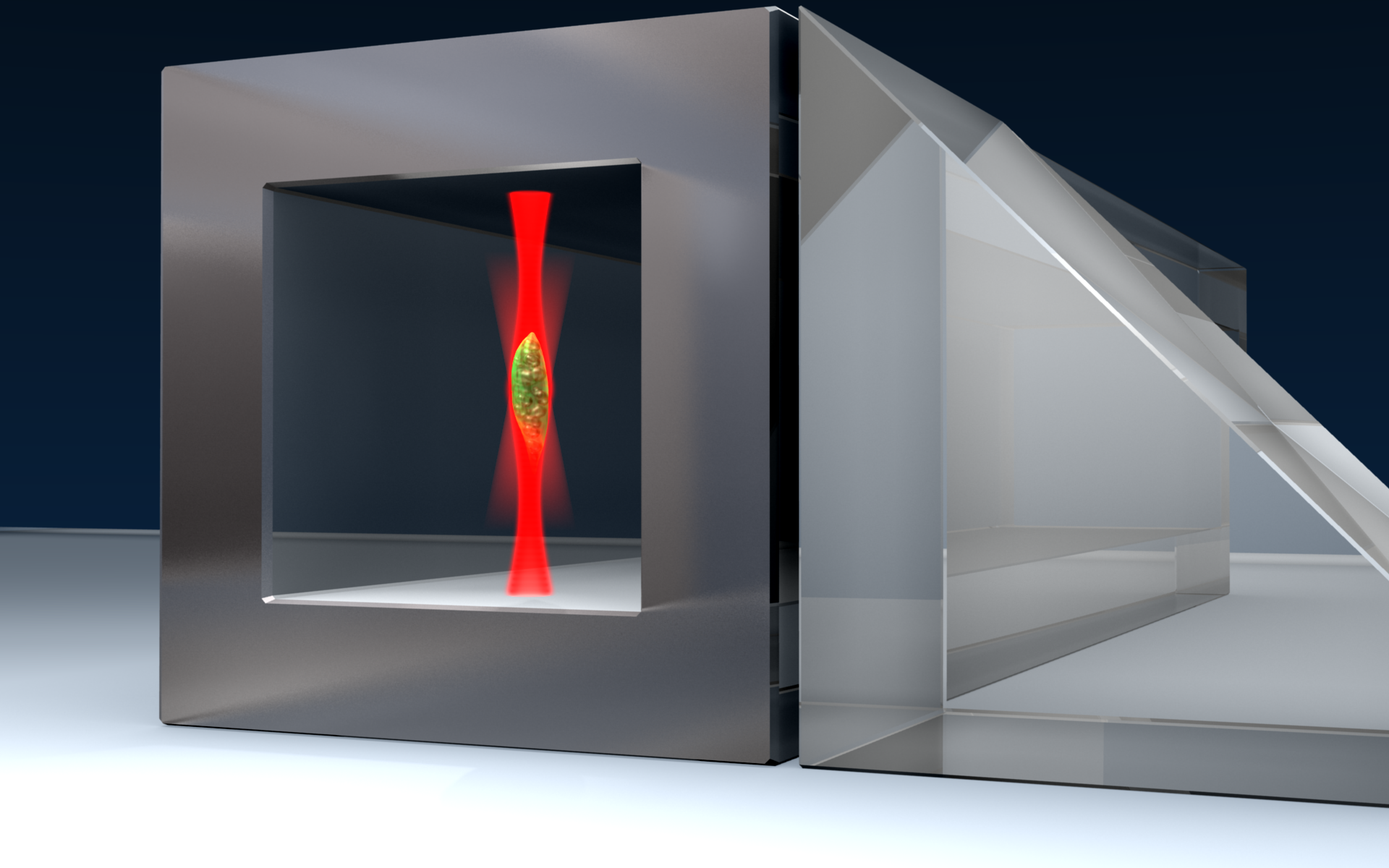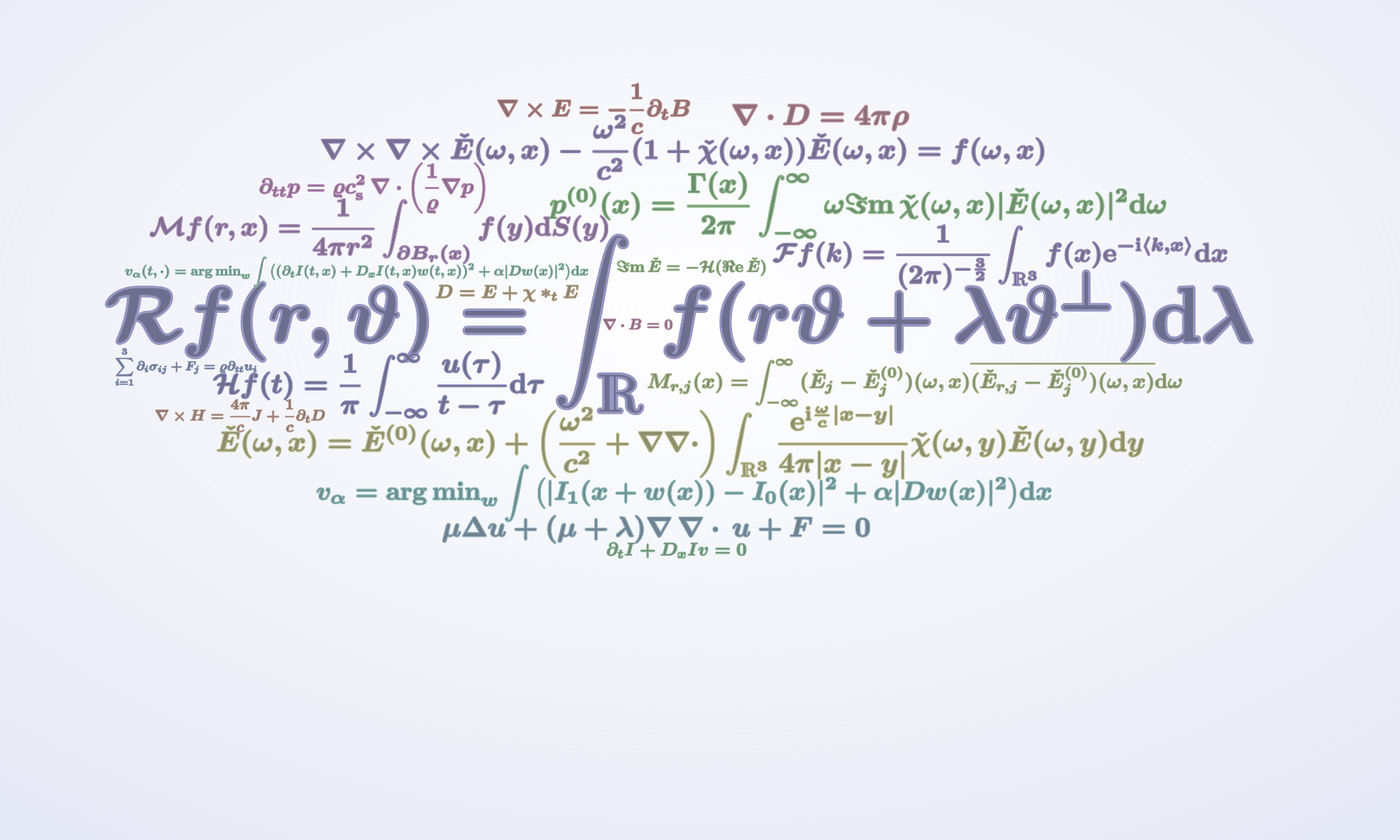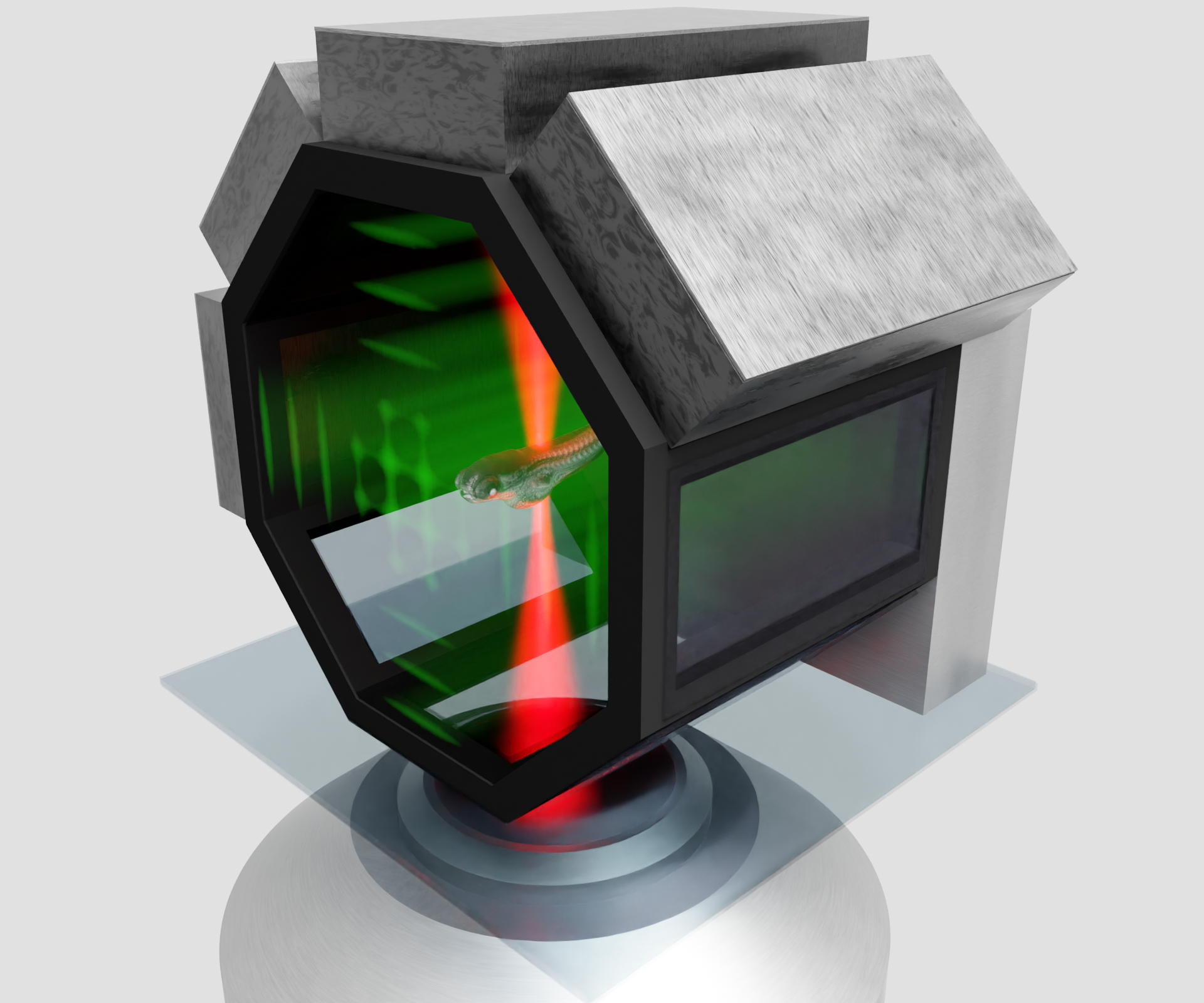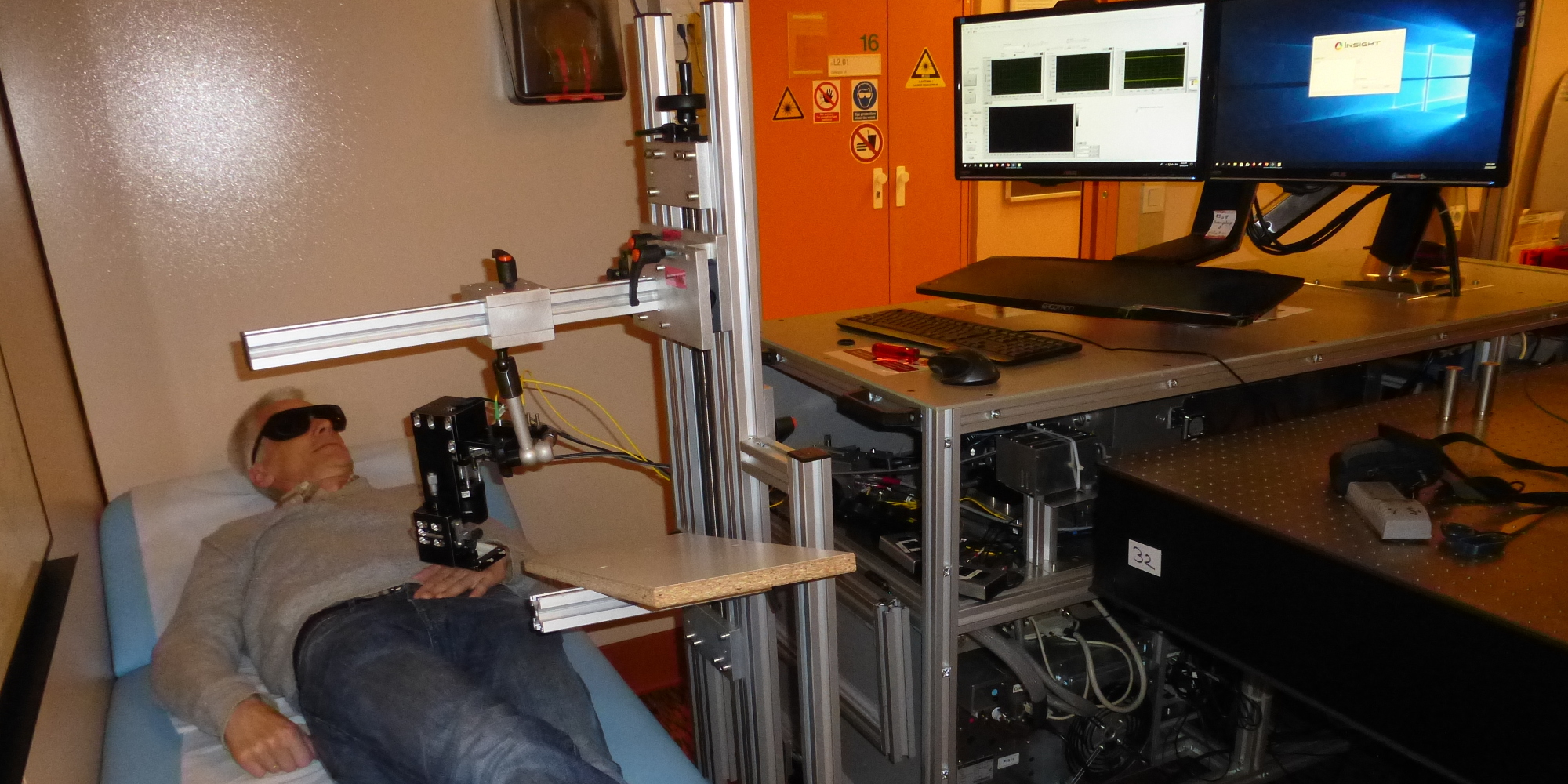Enhanced Wavefront Corrected Ophthalmic Imaging
We aim to develop adaptive optics (AO) algorithms from astronomy in order to substantially improve speed and image quality as well as to increase field of view of state-of-the-art ophthalmic AO imaging systems for retinal imaging.The goal is to characterize the clinical robustness of these novel diagnostic AO systems by in vivo clinical experiments.
Tomography in astronomical applications
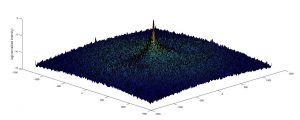
In this subproject we consider the improvement of the imaging process of ground based astronomical telescopes by AO systems and the reconstruction of the Interstellar Matter distribution in our galaxy. We focus on the analysis of models and the development of fast and highly accurate methods for the inversion of wavefront sensor data and the reconstruction of the turbulence profile of the atmosphere above ground based telescopes. An extension of the developed methods toward ophthalmic AO imaging is planned.
Research Team
From Subproject: Multi-Modal Imaging
 Wolfgang Drexler
Principal Investigator
Wolfgang Drexler
Principal InvestigatorProfessor of Medical Physics
Head of Center for Medical Physics and Biomedical Engineering
 Elisabeth Brunner
Postdoctoral Researcher
Elisabeth Brunner
Postdoctoral Researcher
From Subproject: Tomography in Astronomy
Industrial Mathematics Institute Altenberger Straße 69 4040 Linz, Austria
 Ronny Ramlau
Principal Investigator
Ronny Ramlau
Principal InvestigatorProfessor of Mathematics
Scientific Director of RICAM
 Victoria Laidlaw
Postdoctoral Researcher
Victoria Laidlaw
Postdoctoral Researcher
 Simon Hubmer
Postdoctoral Researcher
Simon Hubmer
Postdoctoral Researcher
